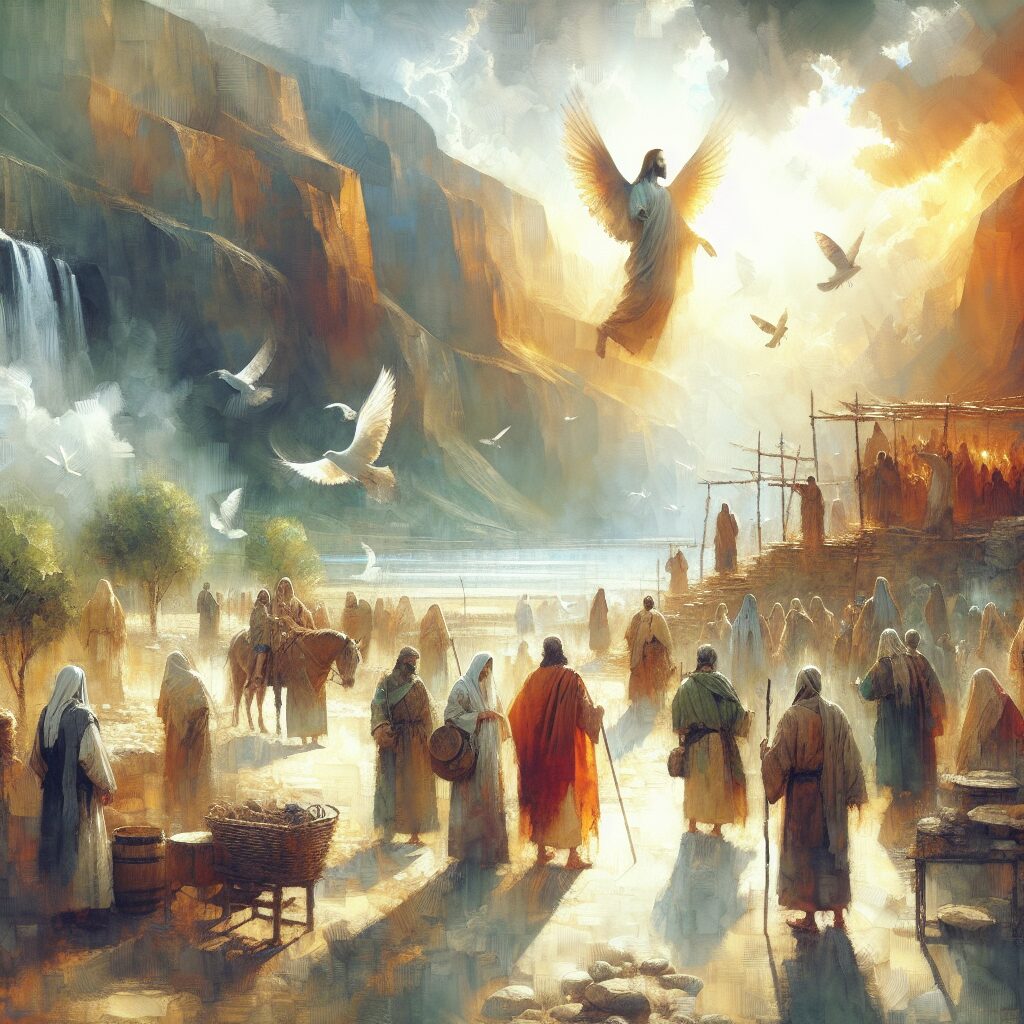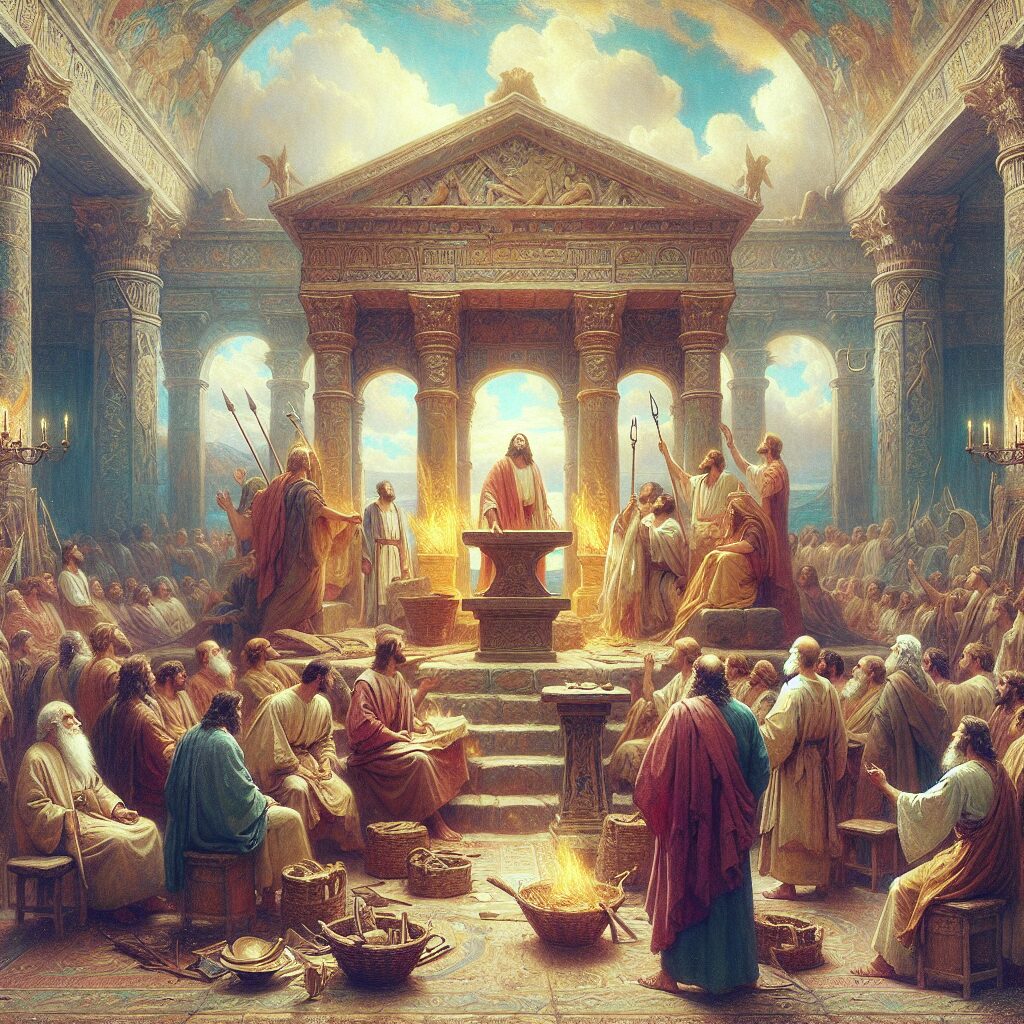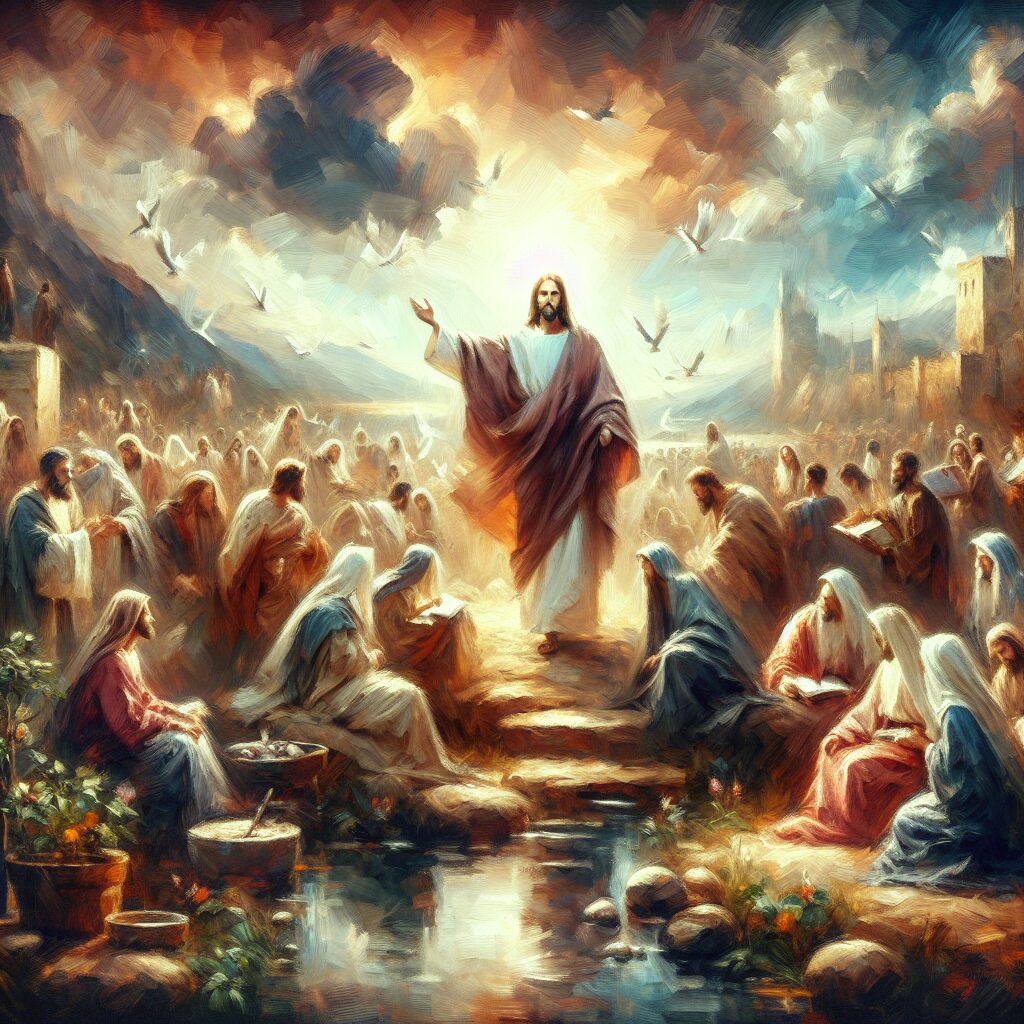Daily Bible Affirmation for November 20, 2020 – 2 Samuel 3:22

Bible Verse
“Just then David’s men and Joab returned from a raid and brought with them a great deal of plunder. But Abner was no longer with David in Hebron, because David had sent him away, and he had gone in peace.” – 2 Samuel 3:22
Reflection
This passage from 2 Samuel 3:22 is a snapshot of a larger narrative involving the power struggles and intricate political maneuvers during King David’s reign. While on the surface, this verse might appear to be a simple record of military activity and diplomacy, there lies within it a rich tapestry of lessons about leadership, peace, and reconciliation.
David’s decision to send Abner away in peace demonstrates a moment of profound wisdom and trust in God’s greater plan. Though Abner had previously been Saul’s commander, and thus an adversary to David, his presence in Hebron and subsequent peaceful departure suggest a critical turning point in the restoration of unity among the tribes of Israel. David’s actions reflect a deep understanding of God’s grace and his capacity to see beyond past enmities towards a future of hope and cooperation.
This provides us with a powerful lesson in forgiveness and the pursuit of peace. In our lives, God calls us to love and reconcile with those we might view as adversaries. David’s trust in God inspires us to foster relationships built on peace rather than on previous conflict. It reflects the beauty of faith— the ability to trust that God is working not just in moments of harmony, but even through conflicts and resolutions, guiding us towards His divine purpose.
Moreover, David’s leadership showcases the importance of humility and the ability to see each person through the lens of God’s transformative love. This is a reminder to us to extend grace, not based on past actions, but on the potential for divine change and renewal that God offers.
Each interaction we have today can be an opportunity for such peace and renewal. Whether it’s a family dispute or a challenge at work, we are urged to channel David’s wisdom, to act with patience and to pursue reconciliation. God’s love teaches us that there is always room for grace, always an option for peace, and always hope for unity— concepts that are as relevant today as they were in biblical times.
Closing Thought
Let’s take David’s example as a guiding light, knowing that our relationships should strive for peace and restoration, rooted in faith and trust in God’s plan. May we embody God’s grace and foster reconciliation in our daily lives, allowing His steadfast love to transform every aspect of our lives into a tapestry of unity and hope.
Daily Bible Affirmation for November 20, 2020 – 2 Samuel 3:22 Read Post »



